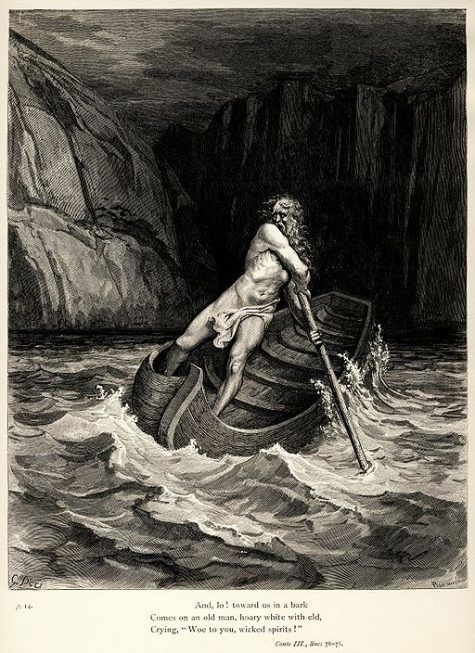Although not a critically acclaimed horror movie, 1408 (2007) was actually an incredibly enlightening horror movie; this movie, for a lot of people, may have come across as a simple ghost story narrative in a haunted hotel room, when in reality the story was a lot deeper than that. Adapted from a short story written by Stephen King, 1408 is actually a modern-day narrative that parallels Dante’s journey into the depths of hell in Dante’s Inferno (1427).
1408 (1999) A Short Story by Stephen King
1408 (1999) is a short story that was penned by Stephen King, it was released as the third story in an audiobook collection titled Blood and Smoke. In 2002, it was collected in written form as part of a twelve-part collection of Stephen King’s short stories under the titled Everything’s Eventual.
In the Introduction, King tells us that 1408 is really just his version of the “ghostly room at the inn,” this was his way of describing the theme of a haunted hotel or motel room within the horror genre of fiction.
The Plot of 1408
Stephen King spins the tale of a non-fiction writer named Mike Enslin–he writes about the paranormal and his goal is to find evidence that ghosts exist. Although Enslin privately does not believe in the paranormal or ghosts for that matter, he feels guilt that stems from his books being best-sellers.
Enter the Dolphin Hotel on 61st Street in New York City–a hotel that has one room with a sinister reputation and Enslin plans on staying there as part of the research for his next book, “Ten Nights in Ten Haunted Hotel Rooms.” Before being given his key to the room, the hotel’s manager, Mr. Olin, gives Enslin the details of the morbid history of it; room 1408 has been responsible for 42 deaths, including 12 suicides over the span of 68 years. Olin insists that Enslin not stay in the room, because he believes there is something evil that resides within, even if he himself does not believe in the paranormal.
One interesting detail that Olin provides is that the Dolphin Hotel doesn’t have a recognized 13th floor, so even though room 1408 is labeled as the 14th floor, it’s really on the 13th. What’s worse, is if you follow the rules of numerology, the room’s numbers even add up to the number 13 (1+4+0+8=13).
The Great Poet Dante Alighieri, and His Famous Inferno (1427)
Dante Alighieri wrote the Divine Comedy, the first part of which was the famous Inferno (1427), a poem told from the perspective of the narrator, who happens to be lost in a dark wood wherein he is attacked by three beasts from which he cannot escape. Virgil, the Roman poet having been sent by Beatrice, rescues him from these beasts and together they begin the journey into the Nine Circles of Hell.

First Circle: Limbo
The First Circle of Hell is inhabited by virtuous non-Christians and unbaptized pagans–here they are to endure a punishment which is an eternity within a subpar form of Heaven. Those in Limbo live in a castle that has seven gates which are there to symbolize the seven virtues–it is here that Dante recognizes many prominent non-Christian people from classical antiquity like the author Homer, the philosophers Socrates and Aristotle, the statesman Cicero, the physician Hippocrates, as well as the infamous Roman consul, Julius Caesar.
Second Circle: Lust
The Second Circle of Hell is the level at which Dante and Virgil find people who in their lives were overcome by lust. Their punishment is to endure an eternity of being blown violently back and forth by tumultuous winds which prevent them from finding any peace in their afterlife. The winds symbolize the ferocity with which a person pursues the object of lust and the restlessness they find by being led by their desires for the carnal knowledge of their object of lust. Once again Dante sees many historical and mythological people of note–Egyptian pharaoh Cleopatra, the Cornish Knight Tristan, Helen of Troy and many others who were adulterous or let their lust control their path in life.
Third Circle: Gluttony
Upon entering the Third Circle of Hell, Dante and his companion see the souls of gluttons who guarded by a worm-monster Cerberus. The sinners in this particular circle of Hell are forced to lay in a vile slush that is caused by an constant sleet. The slush that lay in symbolizes the personal degradation of those who overindulge in food, drink, and other worldly pleasures. Even though there are others laying beside them in the slush, they have an inability to see each other, which represents the sinner’s selfishness and coldness.
Fourth Circle: Greed
The Fourth Circle of Hell, they find the souls of people who committed the sin of greed; this circle is divided into two factions of sinners, those who hoarded worldly possessions and those who spent it on unnecessarily lavish things. These two separate groups are meant to fight each other for all eternity, using enormous weights that they must push with their chest to symbolize their selfish desire of fortune within their lifetime. The damned within this circle is watched over by Pluto–likely due to his ancient Greek origin as the god of the underworld. In Dante’s narrative, he claims to see many clergymen including greedy cardinals and popes.
Fifth Circle: Anger
The Fifth Circle of Hell is reserved for the wrathful and the sullen; while being transported via boat by Phlegyas over the river Styx, Dante and Virgil witness the wrathful fighting on the surface and the sullen drowning below the surface. This punishment symbolizes their sins in life, where the wrathful show their anger on the surface and the sullen drown in their own turmoil.
Sixth Circle: Heresy
The Sixth Circle of Hell is where Dante and Virgil see the heretics that have been condemned to an eternity entombed within their flaming crypts.
Seventh Circle: Violence
In the Seventh Circle of Hell, the two companions see that it is divided into three rings–the outermost ring houses murderers, as well as those who were violent to other people and property in general, wherein they are sinking into a river of boiling blood. The middle ring houses those who have committed violence upon themselves and have ended up within this circle by taking their own lives–these people have been changed into trees and bushes where they are fed upon by harpies. Within the middle ring Dante also sees profligates as they are chased and ripped to shreds by rabid dogs. The innermost ring is reserved for blasphemers and sodomites, who are doomed to inhabit a desert of burning sand as a burning rain falls from the sky.
Eighth Circle: Fraud
Those who are fraudulent are meant for the Eighth Circle of Hell–they are watched over by Geryon, a flying monster with different natures, just as the fraudulent have ever-changing natures. This circle is divided into ten bolgias, or “evil ditches” that have bridges between them. The first is for panderers and seducers, the second is for flatterers, the third is for those guilty of simony (such as those who sold tickets to heaven, or a heavenly pardon to those already passed). The fourth ditch was for sorcerers and false prophets, the fifth for corrupt politicians, the six for hypocrites. The remaining four ditches were reserved for thieves, evil counselors and advisers, divisive individuals, and in the last various falsifiers, like alchemists, perjurers, and counterfeits.
Ninth Circle: Treachery
The Ninth and final Circle of Hell is divided into four different rings and who is housed within them is in accordance to the seriousness of the sin. While all of the inhabitants are frozen in an icy lake, the more severe the sin, the deeper within the ice they are. The first ring is named Caina, after Cain who killed his brother Abel. The second ring is named Antenora, for Anthenor of Troy the primary counselor for Priam during the Trojan War. The Third ring is named Ptolomaea, after Ptolemy, and the fourth ring is named Judecca, in honor of Judas Iscariot, the famous apostle who betrayed Jesus.
1408: The Philosophical Depths That Horror Can Reach
Real Dimensional Pictures on Youtube does a great job making this Philosophical argument that can made when the movie 1408 (2007), or Stephen King’s short story 1408 (1999) are put in juxtaposition with Dante’s Inferno (1427).

Georgia-based author and artist, Mary has been a horror aficionado since the mid-2000s. Originally a hobby artist and writer, she found her niche in the horror industry in late 2019 and hasn’t looked back since. Mary’s evolution into a horror expert allowed her to express herself truly for the first time in her life. Now, she prides herself on indulging in the stuff of nightmares.
Mary also moonlights as a content creator across multiple social media platforms—breaking down horror tropes on YouTube, as well as playing horror games and broadcasting live digital art sessions on Twitch.

